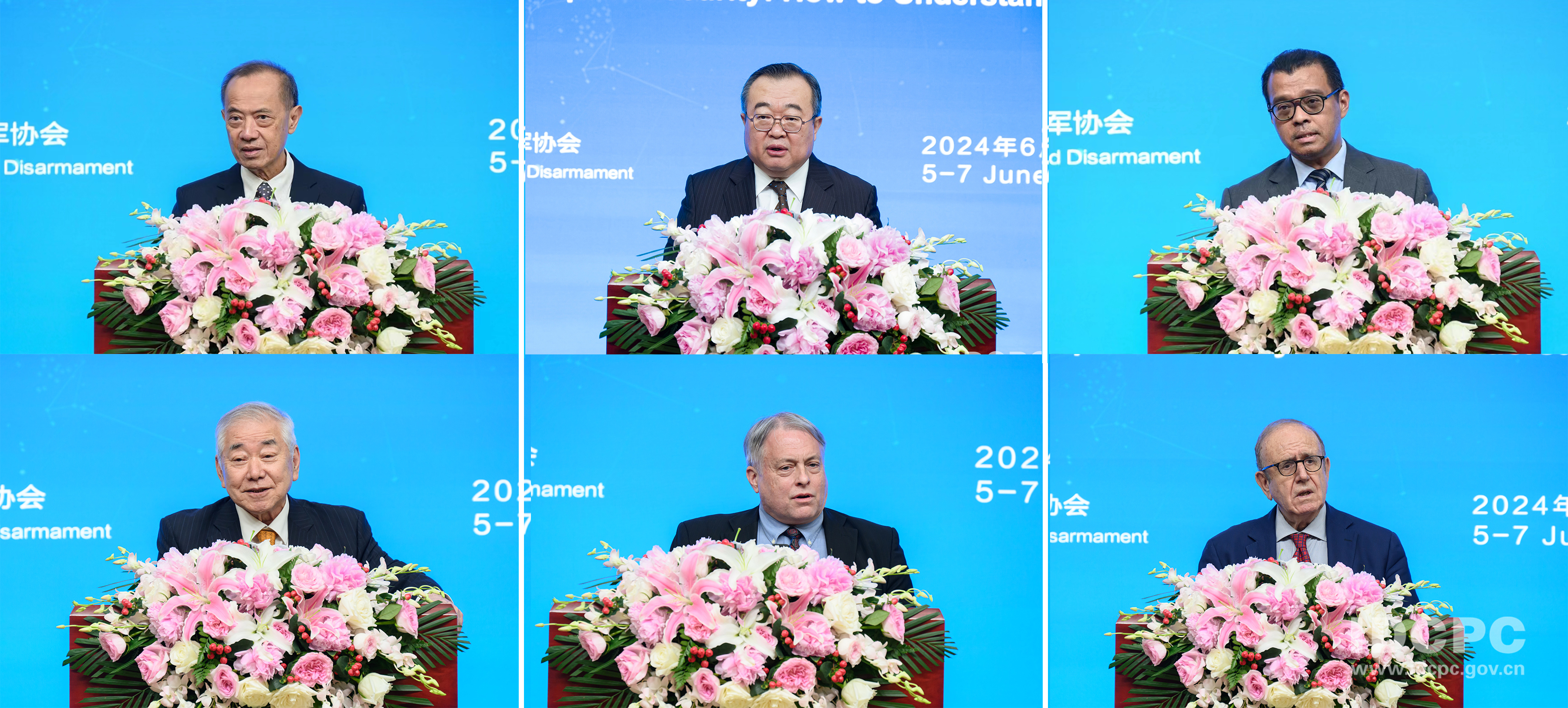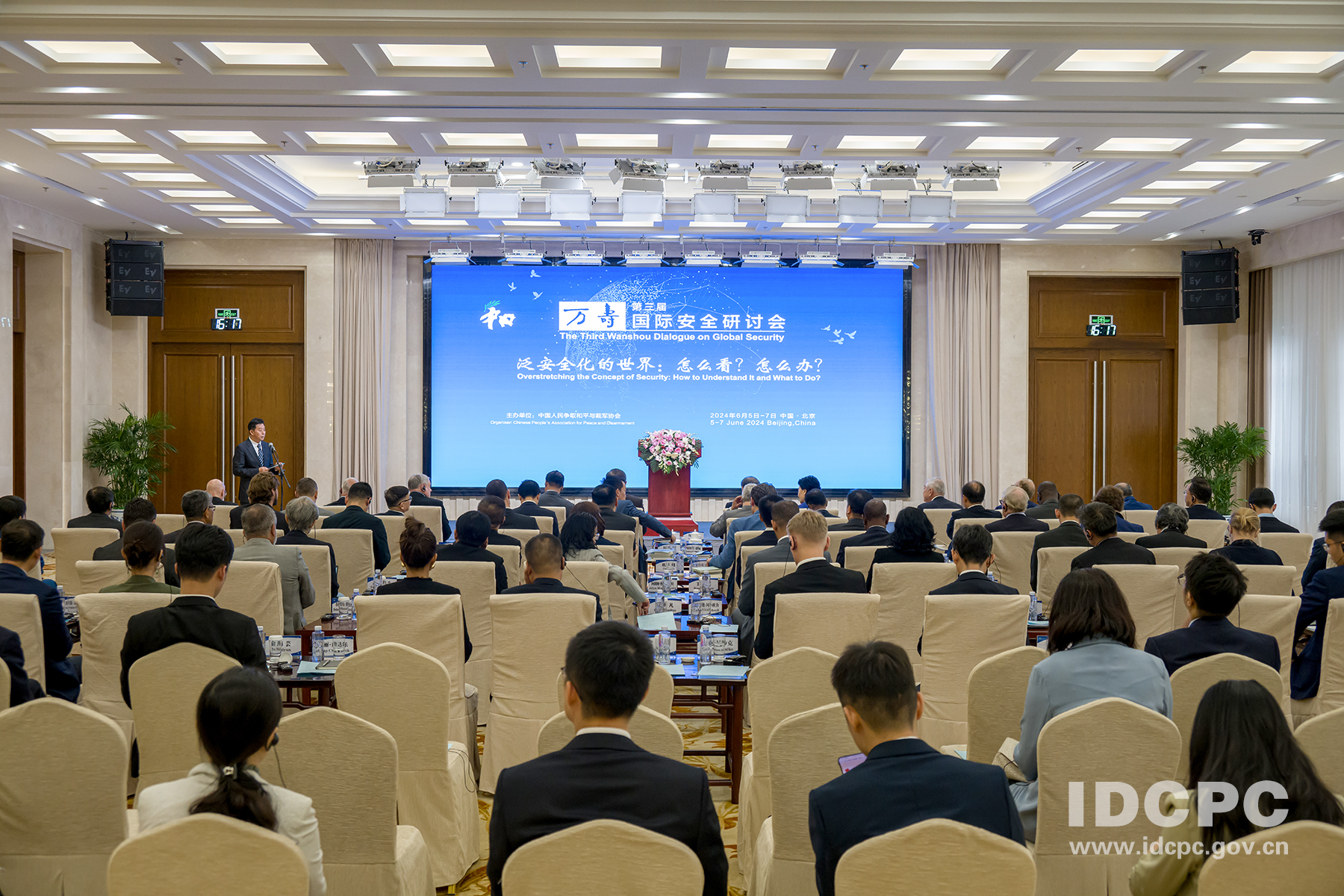
Beijing, June 5th—The third Wanshou Dialogue on Global Security, organized by Chinese People's Association for Peace and Disarmament, was held here today. The dialogue is themed on how countries should view the world with rampant abuse the concept of security and what we should do. Liu Jianchao, Minister of the International Department of the CPC Central Committee (IDCPC) attended the dialogue and delivered a keynote speech. Over 60 international security experts from more than 20 countries and international organizations were present, including George Yeo, former Foreign Minister of Singapore, Andi Widjajanto, former Cabinet Secretary of Indonesia, Moon Chung-in, former special adviser for national security to former Republic of Korea President, Doug Bandow, former special assistant to former United States President Ronald Reagan, and Pino Arlacchi, former Under-Secretary-General of the United Nations.

Liu said, changes unseen in a century are unfolding at a faster pace, with transformation and turbulence in the world today. Traditional and non-traditional security threats are entwined. Artificial intelligence (AI), climate change, space and the polar regions, among others, are posing a whole new set of challenges. Some countries, under the pretext of responding to security risks and challenges, overstretched the concept of security, blurred the lines of security and exaggerated the security risks, harbored geopolitical calculations, and sought exclusionary blocs, further intensifying the complex and tense situation of global security.
Liu said, the abuse of the security concept overstretches the concept of security. Without helping resolve security risks and challenges, it makes contradictions more acute and prominent, and brings more instability to international peace and stability. The abuse of the security concept pursues absolute security. It will not only fail to resolve one's own security concerns, but will also trigger new conflicts and confrontations, making oneself and the world more insecure. The abuse of the security concept erodes the foundation of common development, and damages the development rights and interests of the vast number of developing countries. It is not conducive to the well-being of people in all countries of the world, and makes global development less secure and global security less sustainable. It aggravates the global security dilemma, seriously undermines the international security order, and casts a new shadow of war over the world.
Liu said, President Xi Jinping proposed the Global Security Initiative based on the common interests of China and the world and the common well-being of mankind. This is a vivid practice of the concept of a community with a shared future for mankind in the field of global security. It guides us to establish a correct understanding of the new security concept and charts the course for global security governance. We must establish the concept of common security, respect the core interests of every country, accommodate the reasonable security concerns of every country, and truly realize universal security and common security. We should uphold the principle of openness and inclusiveness, treat all initiatives that are conducive to peace and development with an open attitude, support all parties' actions that are conducive to peace and development, participate in various mechanisms and arrangements that are conducive to peace and development, and provide more positive energy for maintaining common security. We must strengthen the orientation of unity and cooperation, treat each other as partners rather than opponents, and adhere to cooperation rather than competition, so as to maximize the joint efforts to promote international security. We must adhere to the path of dialogue and consultation, find practical and feasible solutions that take into account the interests of all sides on the basis of negotiation, make up for the weak areas of global security governance, and inject more certainty and stability into world peace.
Liu said, China's development cannot be separated from world peace. The great cause of advancing the great rejuvenation of the Chinese nation through the Chinese path to modernization and building China into a great modern socialist country in all respects requires a peaceful and stable external environment. On the new journey, China will, as always, continue to champion peace, development, cooperation, and mutual benefit, and work hand in hand with all countries and peoples in the world who love peace and are committed to development, to build a beautiful world of lasting peace and universal security.

The foreign guests said amid current international volatility, all countries face traditional security threats such as war and military conflicts, as well as non-traditional security threats like climate change, large-scale infectious diseases and transnational crimes. The technological revolution represented by AI has brought new challenges. With interests of all countries closely intertwined, the failure of one country may ultimately lead to failure of all. We should not pursue the so-called "absolute security" or abuse of the security concept. Instead, we should strengthen dialogue and listen to each other to enhance mutual trust, expand cooperation, and meet common challenges together. The role of multilateral mechanisms such as the United Nations, BRICS, the African Union, and ASEAN should be enhanced, to amplify the voice of the Global South, and advance the reform of the global governance system. The foreign guests positively evaluated the Global Security Initiative proposed by President Xi Jinping, calling for the peaceful resolution of international disputes to realize lasting peace and common security.
Sun Haiyan, Vice-minister of the IDCPC, was present.





















